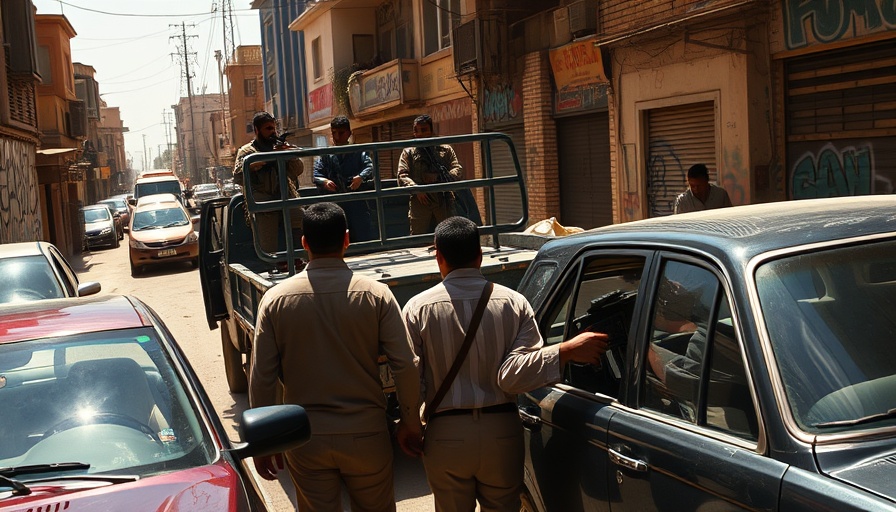
Understanding the Druse Community's Decision Amidst Violence
The Syrian town of Ashrafieh Sahnaya has become a microcosm of the broader struggles within the country, as Druse leaders recently agreed to disarm militias following violent clashes that claimed many lives. This decision represents a significant shift in the local political landscape, showcasing both the community's desperation for stability and the government's hope to maintain control in a rapidly changing situation.
The Historical Context of Sectarian Tensions
For decades, Syria has grappled with sectarian tensions that have only intensified amidst the ongoing civil war. The Druse, a minority group primarily residing in southern Syria, have traditionally maintained a degree of autonomy. Their unique beliefs and practices distinguish them from both Sunni and Shiite Muslims, but also make them vulnerable during conflicts, particularly when government authority is questioned. The violent outbursts seen recently are symptomatic of their struggle to navigate these complex relationships while advocating for their communities' safety.
A Call for Unity: What It Means for the Future
As Druse leaders called for unity, stating, "We’re all in one ship," there’s a clearer understanding of the necessity for collaborative governance in Ashrafieh Sahnaya. This appeal is especially poignant against the backdrop of violence, illustrating that, despite differences, there is a mutual interest in survival. Many residents are hopeful that integrating militia forces into government structures can lead to a more stable environment, though this sentiment is tempered by fear and skepticism regarding the government’s ability to uphold their promises.
Future Predictions: Possible Outcomes from Disarmament
The decision to disarm and integrate militia members into the governmental forces could potentially set a precedent for other communities facing similar dilemmas. If successful, this integration might foster a newfound trust in government forces, indicating a possible decline in sectarian violence. However, the efficacy of these measures largely hinges on the government’s attention to issues such as previous abuses and continued economic difficulties faced by the residents of Ashrafieh Sahnaya. Economic stability can act as a balm for sectarian wounds, facilitating a less volatile coexistence of differing communities.
Counterarguments and Diverse Perspectives
However, it’s essential to recognize that not everyone within the Druse community shares the optimism for this arrangement. Some community members fear that surrendering their weapons could leave them vulnerable should the situation deteriorate again. They worry that the integration of militia fighters may perpetuate the same kind of power dynamics that led to their initial resistance against the government forces. These concerns highlight the delicate balance leaders must maintain as they navigate political pressure while striving to protect their community.
The Importance of Community and Government Relations
The relationship between the government and local communities like the Druse is critical in fostering long-term peace and stability. The recent agreement represents an opportunity for mutual understanding and growth, allowing government officials to demonstrate their commitment to all Syrian citizens. This is a crucial turning point where both sides must work hard to translate agreements into actionable peace-building measures.
Looking Ahead: The Broader Implications for Syrian Society
The recent developments in Ashrafieh Sahnaya are reflective of larger social dynamics at play in Syria today. As citizens face hardships, their demands for safety and justice grow louder. How leaders respond to these demands may dictate the future of community relations and government authority throughout the region.
What Lies Ahead for the Druse?
With the recent decision, the Druse community stands at a crossroads; they can either cling to arms and face potential retribution or make a bold choice to embrace integration and change. The outcome remains uncertain, but one thing is clear: the choices made in Ashrafieh Sahnaya will resonate far beyond its borders, impacting the ongoing narrative of a country yearning for peace amidst chaos.
 Add Row
Add Row  Add
Add 




 Add Row
Add Row  Add
Add 

Write A Comment